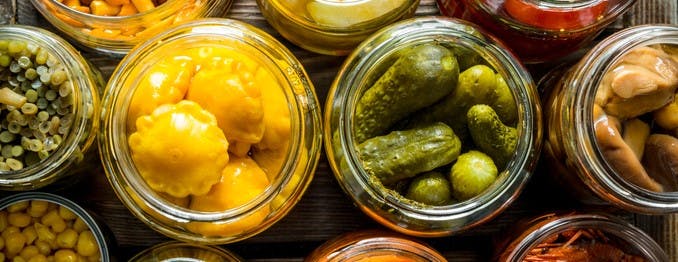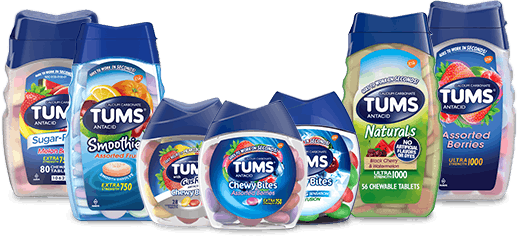Gut Health Foods: How to Keep Your Gut Happy
Believe it or not, our guts have trillions of small bacteria that help keep our digestive tracts healthy and flourishing. What foods you eat and how you care for your digestive system can affect several parts of your body—from your skin to your urinary tract.
While thinking about trillions of bacteria in your body can sound alarming, there’s research to suggest that these bacteria can have significant positive impacts on your overall health or even pre-existing conditions. Let’s unpack some of the important nutrients for gut health, gut health foods, and more.
Important for Gut Health
Probiotics are microorganisms that live in your gut.2 These good bacteria exist in many forms. As scientists continue needed study to learn more about these bacteria, emerging research suggests that ingestible supplements and foods that have good live bacteria can offer gut health benefits 1 Other emerging research indicates good bacteria also help us digest food and manage inflammation in the body.
Prebiotics, on the other hand, are food sources for the good bacteria that are already in your intestine. These food sources are broken down into nutrients once they reach your colon.2 While your gut and your intestine may very well have helpful bacteria, it’s also possible your diet isn’t providing you with enough—or with enough food for your gut bacteria.
Probiotics may help with symptoms of a variety of issues you might be facing, such as:
- Diarrhea
- Crohn’s disease
- Vaginal infections
- Ulcerative colitis
In recent years, researchers have explored how particular strains of bacteria can even help combat diseases. For example, recent findings suggest that gut bacteria might predict someone’s susceptibility to rheumatoid arthritis, and the presence of a particular strain could even help reduce symptoms. Additional research suggests that a bacterial strain such as Akkermansia muciniphila can help prevent the inflammation that contributes to fatty build-up in the arteries.3 Further research is needed to confirm these findings.
It’s important to remember that different bacteria strains may target different conditions. Scientists continue needed work to try to identify the benefits of specific strains and their potential benefits in gut health and other functions of our bodies.
It's also key to remember that probiotics aren't miracle cures that fix everything. Before making the leap to incorporate more of these healthy bacteria and their fuel into your routine, speak to a healthcare professional who is well versed in probiotics and prebiotics. They can help you figure out what might be the best fit for your needs.
Foods for Gut Health
Many naturally fermented foods have probiotics. Consider incorporating several of these foods in your diet, including:
- Pickles or fermented foods like kimchi and sauerkraut
- Yogurt with probiotics (Greek yogurt, Skyr, or Kefir)
- Miso
- Kombucha
- Sourdough bread
Eating a balanced diet, high in fiber and complex carbs creates an ideal environment for the bacteria in your gut.3
While there is a long list of high-fiber foods that are excellent sources of nutrients for good bacteria, it’s important to note that there are also foods you should stay away from if you’d like to maintain a healthy digestive system.4 To help support your digestive health, limit your intake of:
- Fast food or highly processed foods
- Fatty meats like bacon
- Soft drinks
- Alcohol
Not only do many of these foods interfere with the growth of healthy gut bacteria, they’re also culprits for heartburn, bloat, and more.
Choose Moderation
As with all eating habits, moderation is key. While it’s not harmful to indulge in some of our favorite fried foods once in a while, be sure you’re balancing out your diet with some of our recommendations, and look for ways to incorporate both prebiotics and probiotics into your diet to keep it in good shape.
For more information on topics such as these or tips on how to manage indigestion, visit our site.
Sources
- Health benefits of taking probiotics. https://www.health.harvard.edu/vitamins-and-supplements/health-benefits-of-taking-probiotics.
- Prebiotics vs. Probiotics: What’s the Difference? https://health.clevelandclinic.org/prebiotics-vs-probiotics-whats-the-difference/.
- Can gut bacteria improve your health? https://www.health.harvard.edu/staying-healthy/can-gut-bacteria-improve-your-health#:
- GERD Diet: Foods That Help with Acid Reflux. https://www.hopkinsmedicine.org/health/wellness-and-prevention/gerd-diet-foods-that-help-with-acid-reflux-heartburn.


